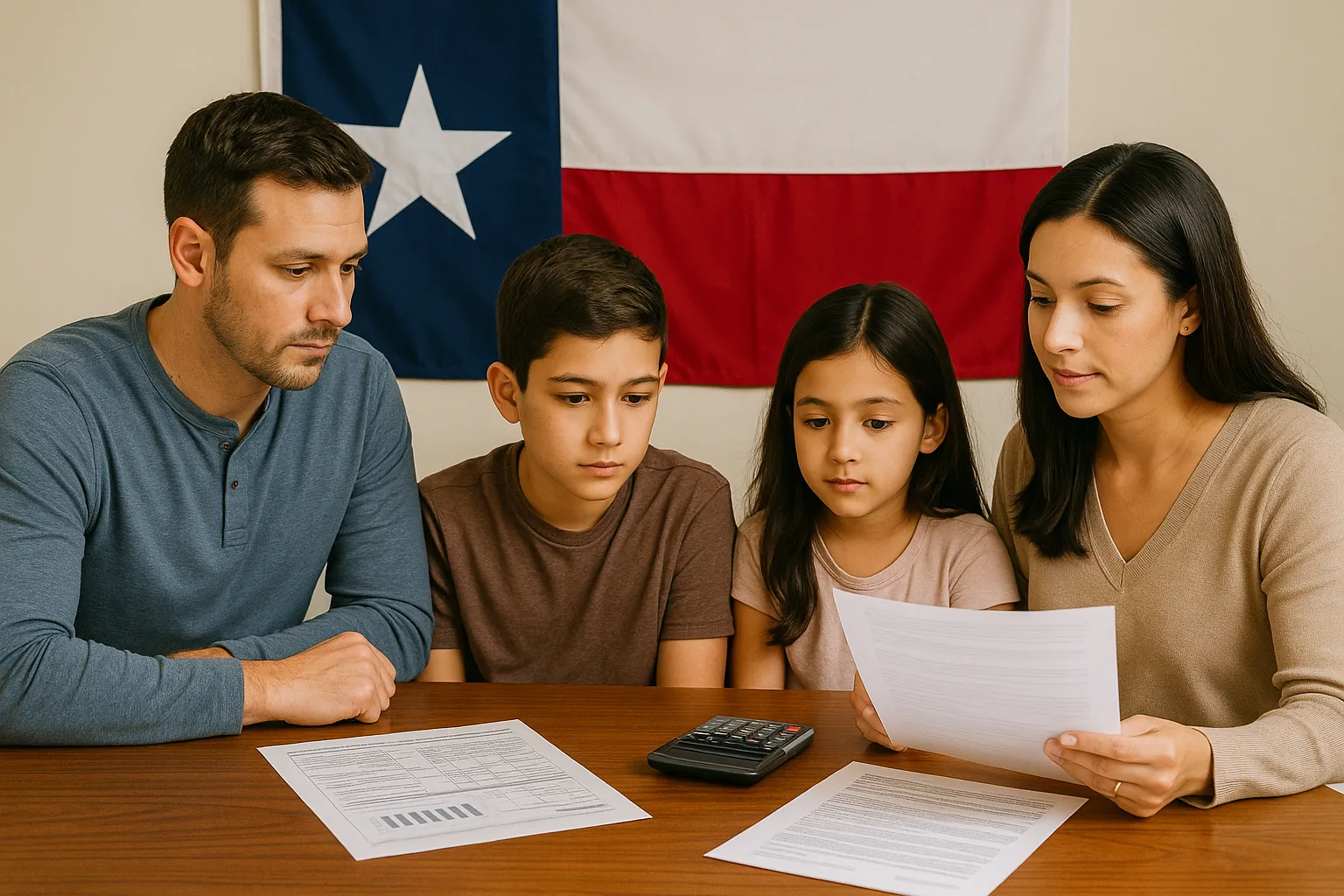Complete Guide to Autism Resources in Greeley, CO

As a BCBA, you are often the first person a family turns to after receiving a diagnosis, looking for guidance on what comes next. Helping them build a comprehensive support system is a critical part of your role, but compiling a list of trusted local services takes time. This guide is designed to be a tool you can share, saving you time and empowering your clients. We’ve gathered information on the key therapy providers, educational programs, financial assistance options, and community groups in the area. Think of this as your go-to directory for the essential autism resources Greeley Colorado provides, helping you connect families with the right support network.
Key Takeaways
- Connect families with central resource hubs: Guide your clients to key local organizations like The Arc of Larimer County and Weld County's HCP. These hubs provide a clear roadmap to vetted therapies, support groups, and community programs in the Greeley area.
- Assemble a holistic care team: A child's success depends on more than one type of therapy. Help families integrate ABA with other essential services like speech therapy, OT, and school-based support to create a consistent and well-rounded treatment plan.
- Inform families about their funding options: Ease the financial burden by educating clients on Colorado's autism insurance mandate, state programs, and local grants. Knowing their options helps ensure families can access consistent, high-quality care.
What Autism Support Services Are in Greeley?
Finding the right support services for a child with autism can feel like a monumental task, but Greeley and the surrounding Weld County area have a strong network of resources ready to help. Knowing where to start is half the battle. Whether you're a BCBA guiding a new family or a parent building a care team, the key is to connect with local organizations that serve as gateways to a wide range of therapies, programs, and support systems.
These groups are designed to help you find exactly what your child needs, from initial diagnosis and early intervention to ongoing therapy and community integration. They can point you toward specialized medical providers, educational programs, and even financial assistance. Think of them as your local guides, dedicated to helping you and your family find your footing and access the best possible care. The journey might have its challenges, but you don't have to do it alone.
Find Key Local Organizations
Your first step in finding support is to connect with the organizations that anchor the local autism community. A fantastic starting point is The Arc of Larimer County, which serves the broader Northern Colorado region, including Greeley. They offer a comprehensive guide to services and act as a central hub, connecting families with everything from therapy providers to educational advocates. They are dedicated to supporting individuals with developmental disabilities and their families through every stage.
Another crucial resource is the Children with Special Health Care Needs (HCP) program right in Weld County. This program is specifically designed to assist families and healthcare providers in the region, ensuring children get the specialized care they require.
Explore Available Services
Once you connect with a local organization, you can start exploring the specific services available. The support network in and around Greeley is robust, offering a variety of therapies and programs tailored to different needs. You can find providers for Applied Behavior Analysis (ABA) therapy, speech and language therapy, and occupational therapy. Many organizations also facilitate assessments, diagnosis, and counseling services to provide a holistic approach to care.
Beyond core therapies, you can also find social skills programs, in-home healthcare, early intervention services, and even music therapy. These programs are designed to support a child's development in multiple areas, from communication and daily living skills to social engagement and emotional well-being. The goal is to build a comprehensive support plan that fits your child perfectly.
Connect with Support Networks
Taking that first step to reach out is essential. The HCP program in Weld County makes it simple for families to get in touch by calling 970-400-2471 or filling out a referral form on their website. Don't hesitate to ask questions and explain your family's specific situation. These support networks are there to listen and guide you.
Finding the right autism benefits and services in Colorado can sometimes be a process of trial and error, but persistence is key. By connecting with local organizations and actively seeking information, you can build a strong support system that empowers your child to thrive. Keep asking questions and advocating for your needs—the right resources are out there.
Find Essential Therapy and Treatment
As a BCBA, you know that creating an effective, holistic treatment plan involves more than just one type of intervention. It’s about building a network of support tailored to the individual’s specific needs. For families in and around Greeley, finding the right combination of therapies is the first step toward helping their loved ones thrive. Understanding the landscape of available services not only helps you make informed referrals but also fosters better collaboration with other professionals, ensuring your clients receive comprehensive, coordinated care. Here’s a look at some of the essential therapies available in the area.
Applied Behavior Analysis (ABA) Services
You’re the expert here, but for families new to the journey, finding the right ABA provider is a critical decision. ABA therapy is a widely recognized approach that focuses on improving specific skills and behaviors, from communication to social abilities. In the Greeley area, families can access ABA services in a variety of settings, including in-home, at specialized centers, or within the community. The key is finding a provider whose approach aligns with the family’s goals and values. As you guide them, you can help them identify programs that offer the right intensity and environment to support meaningful progress, allowing you to focus on delivering high-quality, individualized care.
Speech and Language Therapy
Communication is at the heart of connection, and speech and language therapy is vital for many individuals with autism. Working with a Speech-Language Pathologist (SLP) can address a wide range of communication challenges, from developing verbal speech to using augmentative and alternative communication (AAC) devices. These services are always tailored to the person's unique needs and often complement the goals you’re working on in ABA sessions. Collaborating with an SLP ensures a consistent approach across therapies, helping clients build functional communication skills they can use in their everyday lives. Many local organizations can connect families with qualified speech and language therapy services.
Occupational Therapy
Occupational therapy (OT) is all about helping individuals develop the skills needed for independence in daily life. An occupational therapist can provide crucial support for challenges related to sensory processing, fine motor skills, and self-care routines like dressing or eating. For a child who struggles with sensory sensitivities or the motor skills needed to write, OT can make a world of difference at school and at home. By focusing on practical, everyday activities, occupational therapy empowers individuals to participate more fully in their world. This hands-on support is another key piece of a well-rounded therapeutic plan.
Social Skills Groups
Navigating social situations can be challenging, and social skills groups offer a safe, structured environment for individuals with autism to learn and practice. Led by trained facilitators, these groups provide opportunities to work on everything from understanding social cues and taking turns in conversation to building and maintaining friendships. It’s a space where participants can connect with peers who have similar experiences, reducing feelings of isolation and building confidence. For many, these groups are where they can translate the skills learned in one-on-one therapy into real-world interactions. You can find local social skills groups that cater to different ages and support needs.
Access Educational Resources and Programs
Finding the right educational setting is a huge piece of the puzzle for any family. In Greeley, you have several avenues for educational support, from early intervention programs that build a strong foundation to specialized school-based services. These resources are designed to help children and adolescents with autism learn, grow, and connect with their peers. Let's walk through the key educational programs and resources available to you and your clients in the area, ensuring they have the tools they need to succeed both in and out of the classroom.
Early Intervention Services
Getting support early can make a world of difference in a child's development. Early intervention services focus on helping young children with autism build essential skills from the start. In Colorado, organizations like the Autism Society of Colorado and Soar Autism Center are dedicated to providing this foundational support. They offer programs that can significantly improve developmental outcomes, giving children the tools they need to thrive. These services are a critical first step for many families beginning their journey and looking for comprehensive autism benefits and services in Colorado.
School-Based Support
Once a child reaches school age, public schools become a primary source of support. By law, schools must provide special education services for students with disabilities, including Autism Spectrum Disorder (ASD). This support is formalized through an Individualized Education Program (IEP), a legal document created by a team of parents, teachers, and specialists. The IEP is tailored to the student's specific needs, outlining goals, accommodations, and the services the school will provide. It’s your roadmap for ensuring your client receives the right support to succeed in a classroom setting.
Special Education Programs
Beyond the standard IEP, some schools in the Greeley area have gone a step further by creating specialized programs for students with ASD. These programs offer a more focused environment with staff who have specific training in autism education. They provide a curriculum and structure designed to meet the unique learning styles and social needs of students on the spectrum. This ensures that children receive appropriate and targeted educational support throughout their school day. Having access to these specialized classrooms can be a game-changer for students who need more than just accommodations in a general education setting.
After-School Activities
Learning doesn't stop when the school bell rings. After-school activities provide fantastic opportunities for children and teens to practice social skills in a more relaxed, fun environment. Many local organizations offer social skills groups and other programs designed to help participants learn and apply essential social rules and behaviors. These groups can help build confidence, foster friendships, and make social interaction less stressful. For a great list of options, check out the autism resources compiled by The Arc of Larimer County, which highlights a variety of after-school programs in the region.
Get Medical and Professional Support
Building a strong medical and professional support system is a critical step in creating a comprehensive care plan. This network acts as the foundation for effective therapy, providing families with the diagnoses, resources, and specialized care needed to help their child thrive. As a BCBA, you can guide families through this process, connecting them with the right professionals and helping them understand the systems in place to support them. From finding experienced doctors to figuring out insurance, your expertise can make this journey much smoother for the families you serve.
Find the Right Healthcare Providers
Connecting families with the right healthcare providers is one of the most impactful things you can do. Look for pediatricians, neurologists, and developmental specialists who have experience working with children on the autism spectrum. Specialized providers, like the Center for Autism and Related Disorders, offer treatments like Applied Behavior Analysis (ABA) and have a deep understanding of the unique needs of individuals with autism. Encouraging families to find a medical team that communicates well and collaborates with you ensures a more holistic and effective approach to care, creating a circle of support around the child.
Access Diagnostic Services
A formal diagnosis is often the key that opens the door to specialized services, school support, and insurance coverage. Fortunately, Greeley is near several excellent diagnostic centers. Organizations like The Arc of Larimer County provide resource guides that list places equipped to assess for autism, ADHD, and other developmental conditions. Guiding a family toward a comprehensive evaluation gives them clarity and a concrete path forward. It’s the official first step that allows you and other professionals to begin creating a tailored and effective treatment plan based on a clear understanding of the child’s needs.
Understand Your Insurance Coverage
Understanding insurance can be one of the most daunting tasks for families. The good news is that Colorado has supportive legislation in place. Since 2009, the Colorado Autism Insurance Mandate has required many private health insurance plans to cover medically necessary autism services, including ABA therapy. You can empower families by directing them to resources that explain their autism benefits and services in Colorado. Helping them understand their policy and what it covers can alleviate significant financial stress and ensure their child gets consistent, high-quality care without interruption.
Prepare Necessary Documentation
While paperwork is often a big part of accessing services, it’s helpful to know that not every program has strict documentation requirements upfront. Some local programs are designed to be low-barrier to provide immediate help. For example, the Children with Special Health Care Needs program in Weld County allows families to get help without initial proof of income or a formal diagnosis. Sharing this information can be a huge relief for families who feel overwhelmed and unsure where to start, allowing them to access initial support while they gather more formal documentation.
Find Financial Assistance
Navigating the cost of care is one of the biggest hurdles for families. As a BCBA, you can be an incredible resource by pointing them toward financial support systems they may not know about. Helping families secure funding not only eases their burden but also ensures consistency and access to the services you provide. Greeley and the wider state of Colorado offer several avenues for financial relief, from insurance mandates to local grants.
Use Colorado Insurance Benefits
Many families are unaware that Colorado has a state law requiring most health insurance plans to cover essential autism services. This mandate, known as Senate Bill 09-244, includes coverage for diagnosis and treatment. For your clients, this often translates into significant financial support for ABA therapy—at least $34,000 per year for children up to age nine. Understanding the specifics of this law can help you advocate for your clients and ensure they are getting the autism benefits and services they are entitled to under their health plan. It's a powerful piece of information to share during initial consultations.
Access State Support Programs
When insurance doesn't cover everything, state programs can fill the gaps. Colorado’s Family Support Services Program (FSSP) is designed specifically to help families with developmental disabilities access services and get financial assistance for costs that insurance might not pick up. This can include a wide range of needs, from respite care to adaptive equipment. Informing families about the FSSP can connect them with a crucial layer of support, making comprehensive care more attainable and sustainable for their child. It’s a great next step for families looking for additional resources to build a robust support system.
Apply for Local Grants and Funding
Beyond state and insurance support, private grants offer another path for financial assistance. National organizations like Autism Speaks provide grants that can help families cover the costs of social and educational activities, which are vital for a child’s development but not always covered by insurance. These funds can help pay for things like specialized summer camps, therapeutic tools, or technology. Encouraging families to explore these opportunities can help them afford enriching experiences that complement the hard work you do in therapy sessions. A simple grant can make a world of difference for a family's budget.
Learn About Medicaid and Waivers
Medicaid is a powerful resource, and in Colorado, the rules can be surprisingly flexible. For instance, a formal autism diagnosis isn't always required to obtain Medicaid coverage for behavioral therapy. Specifically for families in Greeley, the Weld County "Children with Special Health Care Needs" (HCP) program is an invaluable local resource. This program offers free services and assistance to families of children with special health needs, without requiring proof of income or a specific diagnosis. You can direct families to the Weld County government site to learn more about eligibility and how to apply.
Build Your Community and Family Support
Therapy and educational programs are cornerstones of autism support, but a family’s well-being often depends on the community they build. For many parents, the journey can feel isolating. Connecting with others who understand their daily realities provides a powerful sense of belonging and shared strength. As a BCBA, you can play a pivotal role by guiding families toward resources that offer both emotional and practical support, transforming their experience from one of solitude to one of community.
Building this network is a proactive step that reinforces the progress made in therapy. When parents feel supported, they are better equipped to be consistent partners in their child's care. This support system isn't just a "nice-to-have"—it's a critical component of a holistic care plan. It encompasses everything from finding a friend who just gets it to securing practical help like transportation or respite care. By encouraging your clients to tap into these local Greeley resources, you help create a sustainable, positive environment for the entire family. This network becomes their go-to for advice, a shoulder to lean on, and a source of celebration for every milestone, big or small. It’s about ensuring they have the strength and resilience to thrive long-term.
Join Parent Support Groups
Connecting with other parents who are on a similar path can be incredibly validating. Parent support groups provide a safe space to share triumphs and frustrations without judgment. Here, families can exchange practical advice, learn about local services they might not have known about, and simply find encouragement from people who truly understand. These groups often become a primary source of emotional support and friendship, helping to reduce feelings of isolation. You can point families toward local autism resources that often list active parent groups in and around the Greeley area, giving them a starting point for building their community.
Discover Recreational Activities
Every child deserves to have fun, build friendships, and explore their interests. Recreational activities are a fantastic way for children with autism to develop social skills, improve physical health, and boost their confidence in a low-pressure environment. Greeley and the surrounding areas offer programs tailored to different needs, from sports leagues and art classes to social clubs. These activities provide valuable structure and routine while also giving kids a chance to just be kids. Engaging in these community programs not only enriches the child's life but also provides families with opportunities to connect with others in a positive, relaxed setting.
Arrange Transportation Services
Getting to and from appointments, school, and therapy can be a major logistical hurdle for families. Juggling schedules is hard enough without adding transportation challenges to the mix. Fortunately, there are local services designed to ease this burden. These organizations can help families schedule rides and ensure their child has safe, reliable transport to necessary appointments and activities. Accessing these children's health services can free up a significant amount of time and mental energy for caregivers, allowing them to focus more on their child’s well-being instead of the logistics of getting from point A to point B. It’s a practical solution that can make a huge difference in a family’s daily life.
Secure Respite Care
Being a caregiver is a demanding role, and burnout is a real risk. Respite care is an essential service that provides short-term breaks for primary caregivers, giving them time to rest, recharge, and tend to their own needs. This isn't a luxury; it's a crucial component of maintaining a healthy family dynamic. A trained provider steps in to care for the child, ensuring their safety and well-being while the parent takes a much-needed break. Many local organizations that focus on improving quality of life for families can help connect them with trusted respite options. Encouraging families to use respite care is a way to support their long-term health and resilience.
Create Your Core Support Network
Building a strong support network is one of the most impactful things you can do for your clients and their families. It’s about creating a team of trusted professionals who work together to provide consistent, high-quality care. When everyone is on the same page—from therapists to educators to advocates—families feel more supported, and clients have a better chance of reaching their goals. As a BCBA, you are often in a unique position to help families identify and connect with these essential resources in the Greeley area.
Choose Your Service Providers
Helping a family select the right service providers can feel like a huge responsibility, but you don’t have to start from scratch. The key is to find services that are tailored to the individual’s specific needs. Organizations like The Arc of Larimer County offer a comprehensive guide that lists a wide range of local services, making it easier to find the right fit. By exploring these options with your clients, you can help them build a team that addresses everything from behavioral therapy to daily living skills, ensuring a well-rounded approach to care that supports the whole person.
Coordinate Care Effectively
Once a team is in place, effective coordination is what makes it all work. For families with children who have special health care needs, managing multiple appointments and treatment plans can be overwhelming. Programs like Weld County’s Children with Special Health Care Needs (HCP) provide valuable support for families and providers trying to connect the dots. As a BCBA, facilitating communication between providers ensures that everyone is aligned on treatment goals and strategies. This collaborative approach not only reduces stress for the family but also leads to more cohesive and effective care for your client.
Find Local Advocacy Resources
Advocacy is a critical piece of the support puzzle. When families face challenges accessing services or school-based support, knowing where to turn can make all the difference. Pointing your clients toward local advocacy resources gives them a powerful ally. These organizations can help families understand their rights, communicate their needs effectively, and ensure their child receives the appropriate support. By connecting families with these groups, you empower them to become confident and effective advocates for their children, which is a skill that will serve them for a lifetime.
Assemble Your Professional Team
Your role as a BCBA is vital, but you’re one part of a larger professional team dedicated to your client’s success. This team might include speech-language pathologists, occupational therapists, teachers, and physicians. Organizations like the Center for Autism and Related Disorders (CARD) have shown how a multidisciplinary approach is essential for fostering independence and helping individuals achieve their personal goals. By collaborating with other professionals, you can ensure your ABA programming complements other therapies and supports, creating a unified strategy that helps your clients lead more fulfilling and independent lives.
Explore More Support Services
Beyond the core network of therapists and doctors, a wider world of support exists to help families thrive. Guiding your clients toward these state, regional, and online resources can make a significant difference in their journey. These organizations often provide specialized information, community connections, and practical tools that complement the clinical services you offer. Helping families tap into these broader networks empowers them with knowledge and a stronger sense of community, which are invaluable assets as they support their child's development and well-being.
State-Level Programs
In Colorado, state-level legislation provides a critical foundation for accessing care. The state’s autism insurance mandate, established by Senate Bill 09-244, requires many health insurance plans to cover essential services for individuals with Autism Spectrum Disorder. This includes coverage for testing, diagnosis, and treatment. For families, understanding this mandate is a crucial first step in using their insurance benefits and ensuring they can access the necessary therapies and support without facing prohibitive costs. It’s a powerful piece of advocacy that has opened doors for countless families across the state.
Regional Center Services
For families in Northern Colorado, local organizations offer support tailored to the community's specific needs. The Arc of Larimer County is an excellent example, providing a comprehensive guide to services and resources for individuals with autism and other developmental disabilities. This is especially helpful for families in and around Greeley, as it points them toward local programs and support systems. Having a go-to regional resource like The Arc helps families feel more connected and less overwhelmed, providing a clear roadmap to the help available right in their own backyard.
Online Communities and Resources
Online resources can be a lifeline, offering a wealth of information and support that families can access anytime. The Center for Autism and Related Disorders (CARD) is a fantastic resource hub for families looking to better understand the landscape of autism support. They offer practical tools like a guide to common acronyms, information on finding additional funding, and access to platforms for developing treatment plans. For parents who are new to this world, these resources can demystify complex topics and provide actionable steps for getting organized and advocating for their child.
Related Articles
- Complete Guide to Autism Resources in Denver, Colorado
- Your Guide to Autism Resources in Loveland, CO - Alpaca Health
- Complete Guide to Autism Resources in Fort Collins, CO - Alpaca Health
- Autism Resources in Pueblo, Colorado: A Family Guide - Alpaca Health
- Guide to Autism Resources in Aurora, Colorado - Alpaca Health
Frequently Asked Questions
This is a lot of information. Where is the best place to start? It can definitely feel like a lot at once. The best first step is to contact a central resource that can act as your guide. Reaching out to an organization like The Arc of Larimer County or the Weld County Children with Special Health Care Needs program is a great move. They are designed to help you make sense of all the options and can connect you with the specific services your family needs right now.
What if we don't have a formal diagnosis yet? Can we still get help? Yes, you absolutely can. Some programs are specifically designed to provide support while you are waiting for a formal evaluation. For example, the Children with Special Health Care Needs program in Weld County offers assistance to families without requiring an initial diagnosis or proof of income. This allows you to get support started right away, which can be a huge relief.
How can we get financial help if our insurance doesn't cover all the costs? While Colorado's insurance mandate is a great help, there can still be gaps. If you need additional support, look into state programs like the Family Support Services Program (FSSP), which can help with costs that insurance doesn't pick up. You can also apply for grants from national organizations that help cover everything from therapy tools to recreational activities.
My child's school support isn't enough. What can I do? If you feel your child's Individualized Education Program (IEP) isn't meeting their needs, you have options. The first step is always to communicate with the school team, but you don't have to do it alone. Connecting with a local advocacy organization can be incredibly helpful. They can help you understand your rights and prepare for meetings to ensure your child gets the support they are entitled to.
Are there any resources just for parents and caregivers? I'm feeling pretty overwhelmed. Taking care of yourself is essential, and there are resources specifically for you. Joining a parent support group is a fantastic way to connect with others who understand what you're going through. These groups offer a space to share advice and find emotional support. Also, consider looking into respite care services, which provide you with a much-needed break to rest and recharge.
High Quality, Local ABA
If you are ready to partner with a local BCBA and receive the highest quality of care, reach out today!













